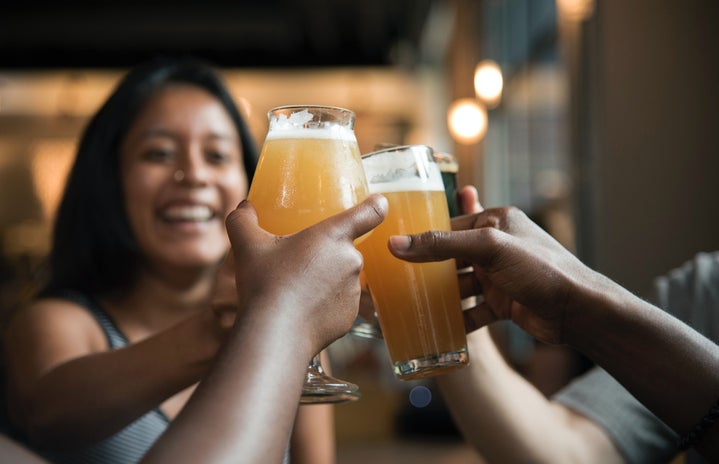College is usually seen as a time of new experiences, beginnings, and self-exploration. Most kids are excited and a little nervous for a separate life from their parents, while most parents are nervous and a little excited for their kids to grow. But, usually, they don’t know exactly what they’re getting into. I think that the challenges regarding sobriety and quitting substances are particularly relevant in college life. With the rising popularity of e-cigarettes, the ease of obtaining a fake ID, and the glorification of hard drugs, getting addicted to something is unfortunately a common college experience. And, once you are addicted, quitting is an even bigger battle.

So, why is addiction so prevalent in college in comparison to adult life? Most kids are underage, and school becomes an integral part of our lives. Yet there is a certain expectation for college to be your “party years”. Despite the overwhelming load of school work and the seemingly impossible task of figuring out how to function as an adult, it’s simply out of the norm to be sober.
Alcohol has become a central element to nearly all social functions. I even know kids who attend class intoxicated, regardless of the time of day. From dorm parties to frats to just hanging out with a few friends, drugs and alcohol is rarely avoided. Almost every event I attend has beer pong, solo cups, and an abundance of drinking games. And, choosing not to participate often results in ridicule.
There’s certain social pressures in college to participate in substance use that frequently leads to abuse. I have to assume it comes from a history of not-quite-yet fully developed brains. Decision making in teen years is not the most reliable, and a lack of responsibility fuels the college party scene. Specifically at CU Boulder, there is a lot more social pressure to drink and do drugs in comparison to other universities. In fact, CU is on nearly every “Biggest Party Schools” list that I’ve seen. I want to think that it’s due to Colorado’s recent jump into the legalization of marijuana. Known for its green and skunk-like aroma, CU students smoke a hell of a lot of weed. However, weed wasn’t recreationally legal in Colorado until 2012. So, what’s with the long history of substance abuse?
I realized that I was avoiding a painfully obvious reason for CU student’s relationship with substances: the fraternity culture. Parties, darties, mixers, and formals are the pinnacle of our party life. For the majority of our students, bars aren’t an option, so frats have become the place to be. They offer everything a party-searching college student is looking for: earsplitting music, free alcohol, and horny members of the preferred sex. Even sororities, despite their “sober” personna, are major party-goers. The strict rules of their house don’t prevent them from attending every exclusive and inclusive fraternity event. Regardless of your association with Greek life, nearly everyone at CU attends frat parties, especially as freshman, jump-starting an early relationship with substances.
If you’re one of the brave members of our community that wants to be or is sober, I commend you. It’s not easy in a culture of substance abuse and social pressures. Know that you’re not alone in your journey; there’s a lot of students at CU just like you. Plus, sobriety doesn’t mean you’re left out. You can still attend every alcohol-laden social event without drinking. Find some sober friends; the connections you make with them will often be stronger than that of any drug-fueled interaction. If you don’t want to be sober, make sure to create the space for those on a different path than you. There’s no reason for peer pressure or social ridicule at our age. It’s time to grow up and recognize the unique ways to be a part of the college culture.


